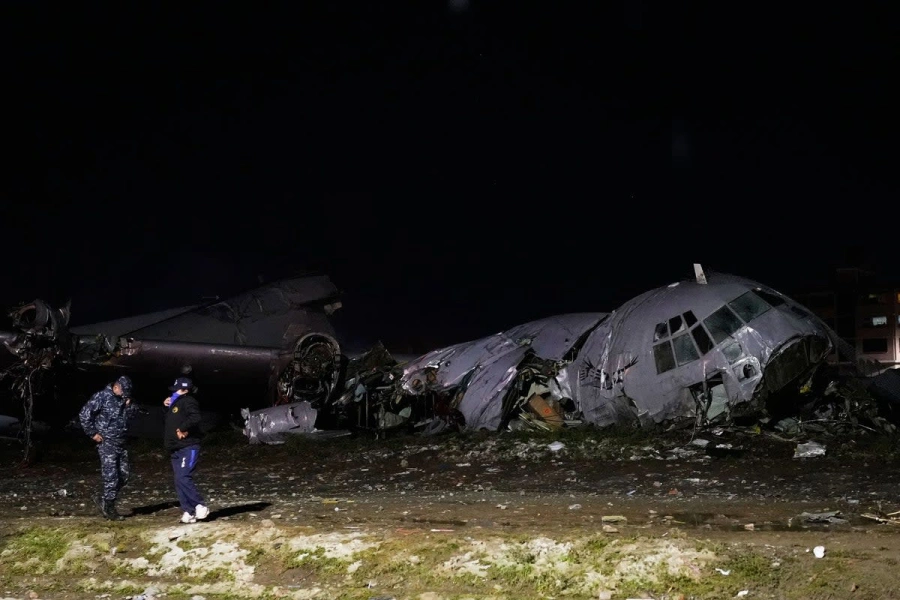KATHMANDU, Aug 2: After years of political wrangling and stalled progress amid differing stances among major political parties on key issues of transitional justice, the Truth and Reconciliation Commission (TRC) bill is set to be passed by the current parliamentary session. The TRC bill is expected to be passed by the current session of parliament after the top leadership of the three big parties endorse the agreement reached at the level of the Task Force on Thursday.
As per the agreement reached on Thursday, the definition of grave human rights violations will now include arbitrary and brutal killings, along with killings other than in direct confrontations. Similarly, the bill addresses how to support individuals involved and affected during the armed conflict, including providing compensation to disabled and injured security personnel.
The three major parties have also agreed to ensure consent from the victims mandatory for any reconciliation efforts. In cases of serious human rights violations, the bill stipulates that reconciliation efforts must first seek the victim's free consent. If reconciliation is not possible, the case may proceed through legal channels.
Thursday’s agreement also outlines provisions for sentence reduction, allowing for a reduction if the perpetrator discloses the underlying reasons for their actions. A specific percentage, up to 75 percent, of the sentence may be considered for reduction.
The agreement to resolve the differences in the TRC bill was reached in a meeting held at Singha Durbar on Thursday. Home Minister Ramesh Lekhak from the Nepali Congress (NC), Chief Whip Mahesh Bartaula from the CPN-UML, Deputy General Secretary Janardan Sharma from the CPN (Maoist Center) engaged in intense negotiations to resolve their differences.
Reviewing transitional justice

Minister for Law, Justice and Parliamentary Affairs, Ajay Kumar Chaurasiya and chairperson of the Parliamentary Committee on Law, Justice, and Human Rights under the House of Representatives (HoR) Bimala Subedi, former Law Minister Dhruba Bahadur Pradhan, Attorney General Keshav Badal and Nepal Army Major General Jiban Prasad Dahal were also among those attending the meeting.
UML Chief Whip Bartaula, a member of the task force, announced that the agreement now shifts focus to preparing a report for submission to the top leaders. Bartaula said, "We initially had disagreements about the TRC bill, but after thorough discussions, we have reached a 100 percent agreement.”
The Task Force members are now expected to present the report to Prime Minister KP Sharma Oli, NC President Sher Bahadur Deuba and Maoist Center Chairman Pushpa Kamal Dahal by Friday or Saturday.
UML Chief Whip Bartaula said that the task force conducted a detailed, word-for-word discussion during the meeting, ensuring that the TRC bill aligns with international law and the Supreme Court's rulings on transitional justice. Bartaula said, "We engaged in thorough discussions, considering each detail carefully. We focused on ensuring that the bill aligns with international law while keeping the victims' needs at the center."
Deputy Secretary General of the Maoist Center, Janardan Sharma, said that they addressed the issue of serious human rights violations, whether deliberate or arbitrary, to ensure that the bill meets the victims' demands and resolves long-standing issues at a political level.
Home Minister Lekhak, also a member of the task force, announced that consensus had been reached on four previously contentious issues. He clarified that killings during the conflict were categorized as either 'intentional' or 'arbitrary.'
He said that the consent of victims has now been made mandatory for any amnesty or reconciliation. Additionally, the three parties have agreed to provide compensation to the families of security personnel killed or injured during the conflict. The agreement also includes defining Maoist fighters as 'conflict-victims' and offering them due compensation.
In cases where the victim does not consent to reconciliation, the matter will be referred to the Attorney General, as per the agreement reached among parties on Thursday. This process ensures that cases are adjudicated based on transitional justice principles while adhering to existing criminal justice standards. This process ensures maintaining a fair and transparent process for all parties involved.
Earlier, the Truth and Reconciliation Commission (TRC) bill faced delays due to disagreements on four critical issues. A task force, consisting of representatives from the NC, UML and Maoist Center, was formed to resolve these disputes.
The group included Home Minister Lekhak from NC, Bartaula from UML and Sharma from the Maoist Center. After extensive meetings and consultations with experts, the group reached a consensus on the four contentious issues.
Home Minister Lekhak announced that the Ministry of Law will draft the agreed-upon provisions into a bill and submit it to the top leaders. He said that transitional justice is a national concern, and the agreement reached by the task force will be passed by parliament through the parliamentary committee and implemented as law.
Maoist Center leader Sharma expressed confidence that the agreed-upon provisions would now move through the legislative process in parliament. "The victims will receive justice as soon as possible. Based on the unique nature of Nepal's home-grown peace process, we have shown that parties can discuss and reach agreements," he said.
UML Chief Whip Bartaula said that the TRC Bill is set to be passed in the current session of the Federal Parliament following the consensus. "The bill is currently with the Law, Justice and Human Rights Committee," he said, "The current session of parliament will conclude only after the TRC Bill is passed.”





































